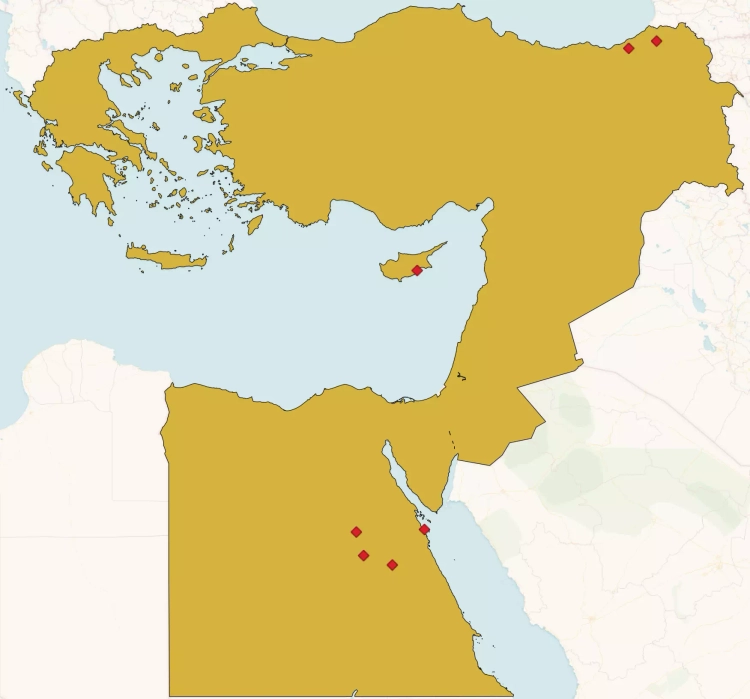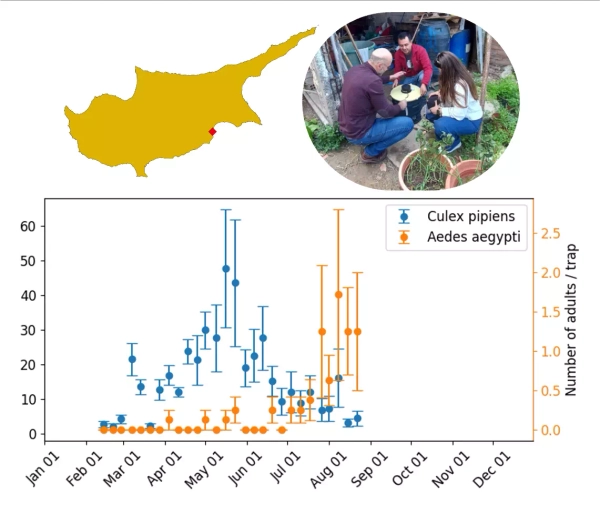Mission
Join us in advancing our understanding of Aedes aegypti in the Eastern Mediterranean and Middle East. In this hands-on Vector Modelling Workshop, we will bring together diverse modelling approaches to simulate, compare, and validate predictions of mosquito dynamics under shared environmental conditions. Using common datasets and collaborative tools, we aim to produce open, climate-sensitive models and risk maps that can guide public health responses in the region.
The advance of Aedes aegypti in the EMME region
Aedes aegypti and Aedes albopictus have recently established in Cyprus, posing a serious risk to public health on the island and across the Eastern Mediterranean and Middle East (EMME) region. Aedes aegypti, in particular, is highly efficient in transmitting diseases such as dengue, chikungunya, yellow fever, and Zika, and we have already observed it in several locations within the three countries shown in the map below.

To better understand the seasonal dynamics of Aedes aegypti in Cyprus, The Cyprus Institute is conducting an adult mosquito monitoring study in Larnaca, where the species is currently established. The study is carried out in collaboration with the Ministry of Health and supported by the EMME-CARE and Mosquitoes Without Borders projects. Each week, adult mosquitoes are collected from a small urban area using eight BG-Sentinel traps baited with BG-Lure and dry ice. Below, we present the initial results ahead of the Workshop to contribute to a better understanding of seasonal vector dynamics.

Modelling presence and seasonal dynamics
In this Vector Modelling Workshop, we focus on developing mechanistic population dynamics models for Aedes aegypti. Our goal is to estimate the geospatial likelihood of establishment and the temporal dynamics of mosquito activity so that we can better assess potential disease risk.
We will use the shared environmental datasets to develop climate-sensitive models and simulate the expected Aedes aegypti activity in the region of interest. Where possible, we will compare model outputs with observed field data to assess validity and then combine results into ensemble spatiotemporal risk maps.
We are bringing our models together to run under similar conditions, allowing us to compare and validate their outputs. If we need additional covariates, we will discuss how to expand the dataset to cover the same time span and resolution.
We have set up a shared Google Drive folder for depositing scripts, outputs, and other relevant resources. Scripts should be self-contained so that they can run directly on the provided datasets. We will compile all scripts in a public GitHub repository to accompany the Workshop publication. With your permission, we will also include them in the VEClim model repository for interactive access and custom simulations, and we plan to demonstrate some of this functionality during the Workshop.
We aim to produce the following outputs, in order of preference:
- Daily number of adult Aedes aegypti (from a dynamical model)
- Daily number of eggs (newly laid or average/median from a dynamical model)
- Geospatial risk, suitability, or susceptibility index (from a correlative model)
By the end of the Workshop, we will compile all datasets, models, and results into a dedicated online resource for the research community working on Aedes aegypti in the EMME region.
